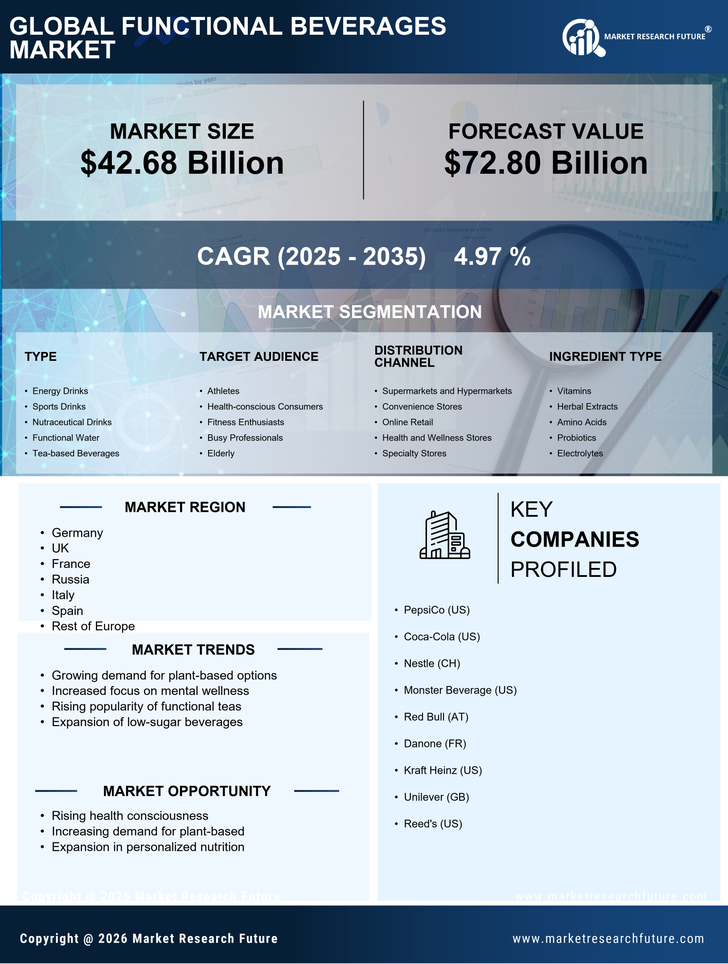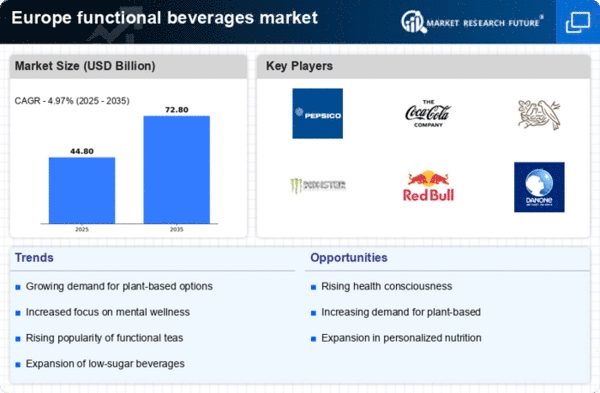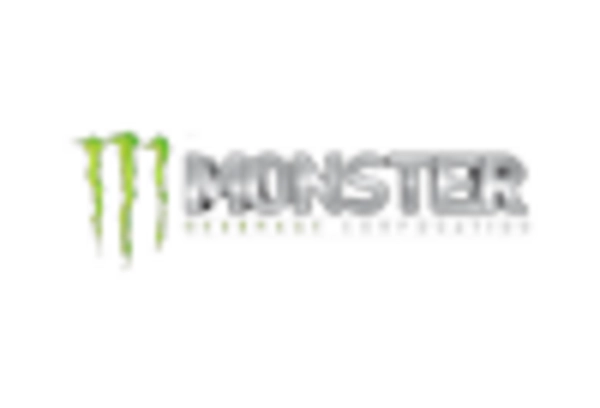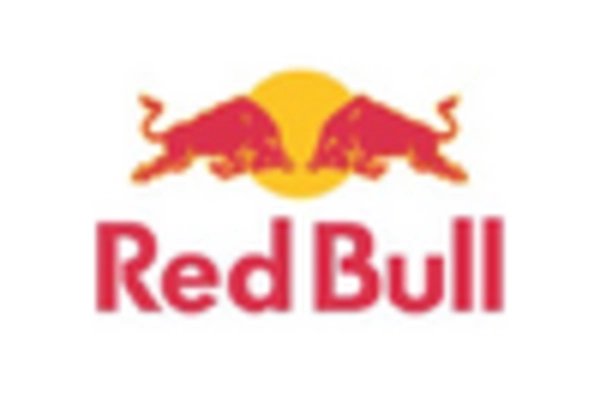Germany : Innovation Drives Consumer Demand
Germany holds a significant market share of 10.5% in the functional beverages sector, valued at approximately €3.5 billion. Key growth drivers include a rising health consciousness among consumers, leading to increased demand for functional drinks that offer health benefits. Regulatory policies, such as the EU's stringent food safety standards, ensure product quality, while government initiatives promote healthy lifestyles. The country's robust infrastructure supports efficient distribution and production, fostering industrial development in this sector.
UK : Diverse Market with Strong Demand
The UK functional beverages market accounts for 8.2% of the European share, valued at around €2.7 billion. Growth is driven by increasing consumer awareness of health benefits, particularly in urban areas like London and Manchester. The government supports this trend through health campaigns and regulations promoting low-sugar options. The market is characterized by a diverse range of products, including energy drinks and wellness shots, appealing to various consumer segments.
France : Sustainable Choices Gain Popularity
France's market share in functional beverages stands at 7.8%, valued at approximately €2.5 billion. The growth is fueled by a cultural shift towards wellness and sustainability, with consumers increasingly opting for organic and natural ingredients. Regulatory frameworks encourage transparency in labeling, enhancing consumer trust. The market is also supported by a strong retail presence in cities like Paris and Lyon, where health-focused products are in high demand.
Russia : Growing Interest in Health Products
Russia holds a 6.0% share in the functional beverages market, valued at about €2 billion. The growth is driven by a rising interest in health and wellness, particularly among younger consumers in urban centers like Moscow and St. Petersburg. Government initiatives aimed at improving public health and nutrition are also contributing to market expansion. However, regulatory challenges and economic fluctuations pose risks to sustained growth in this sector.
Italy : Unique Market with Diverse Offerings
Italy's functional beverages market represents 5.5% of the European share, valued at around €1.8 billion. The market is characterized by a blend of traditional flavors and modern health trends, with consumers seeking beverages that offer both taste and health benefits. Regulatory policies support product innovation, while local initiatives promote the consumption of functional drinks. Key markets include Milan and Rome, where competition is fierce among established brands and new entrants.
Spain : Youthful Consumers Drive Innovation
Spain accounts for 4.5% of the functional beverages market, valued at approximately €1.5 billion. The growth is largely driven by a youthful demographic that prioritizes health and wellness. Government regulations encourage the development of low-calorie and functional products, aligning with consumer preferences. Key cities like Barcelona and Madrid are hotspots for innovative beverage offerings, with major players like Coca-Cola and PepsiCo actively competing in this space.
Rest of Europe : Diverse Opportunities Across Regions
The Rest of Europe holds a minimal market share of 0.18%, valued at around €60 million. Despite its small size, this segment presents unique opportunities for niche products tailored to local tastes and preferences. Regulatory environments vary significantly, impacting market entry strategies. Countries like Sweden and Norway are seeing a rise in demand for organic and functional beverages, driven by health-conscious consumers. The competitive landscape is fragmented, with local brands gaining traction.


















